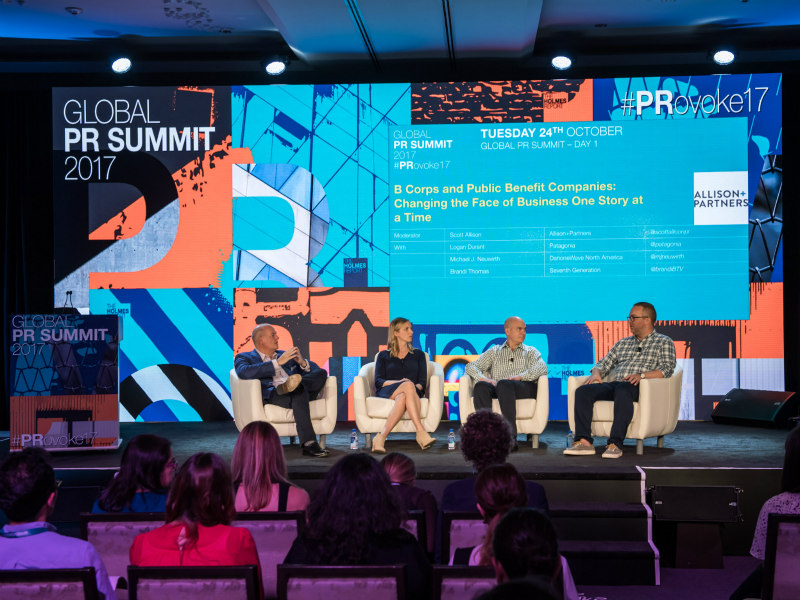Diana Marszalek 24 Oct 2017 // 8:45PM GMT

MIAMI — With a rise in consumer expectations, along with the benefits of doing good, brands are ramping up their mission-driven initiatives — as well as ways to accurately measure their societal impact, according to a panel of executives discussing the topic at PRovoke17 in Miami on Tuesday.
"There’s a real hunger for people to be involved in social movements where they feel they can make a meaningful contribution," said Amy Terpeluk, Finn Partners’ senior partner, CSR & social impact.
Broadening the scope of purpose-driven initiatives, and then concretely proving their value, is a critical component of wooing consumers, who, now more than ever are willing to spend with, or withhold money from, brands whose practices or viewpoints don’t jibe with their own, panelists said.
Eight out of ten consumers expect big business to take stands on important issues; Four out of 10 are willing to stop doing business with companies they don’t agree with, said Carol Gstalder, Harris Insights & Analytics president of corporate reputation management.
"People are more engaged. They are doing their homework. They are studying brands and making decisions based on what they learn," Gstalder said.
In fact, brands’ integrity and authenticity is so important that it is increasingly becoming a factor in hiring, she said. "There is a hot war for talent. Demands, especially among millennials, (include) working for corporations with high social responsibility," she said. "It’s a tough bar."
Brands are bolstering their purpose-driven initiatives in a range of ways.
Svend Jansen, Jack Daniels’ global PR manager, said whiskey brands’ efforts focus on two core principles – responsible drinking and responsible marketing. Those values have led to the company’s marketing, for instance, reaching a larger percentage of consumers above the legal drinking age than that set by industry governance.
When it comes to promoting responsible drinking, the brand has struck partnerships with groups from the Zac Brown Band and NBA to offer education and encourage the use of car services after drinking. Each year, Jack Daniels donates $100,000 to help people in the military get home for the holidays or other events.
"From a bottom line perspective, we are hopefully creating fans for life but that’s not what this program is about," Jansen said. "It’s about doing the right thing."
Tarsis Lopez, Astellas US associate director of external and digital communications, said his company’s initiatives include promoting employee volunteerism, and partnering with health and wellness organizations to provide patients information – as well as access to the drugs they need. The organization supports rural schools as a means of promoting STEM education, ultimately furthering the workforce, he added
Meanwhile, other companies have taken completely different tactics toward insuring they are proactively operating with purpose – including embedding the idea into their corporate bylaws.
In a separate session, execs discussed the benefits and intricacies of being a public benefit corporation, which involves having societal purpose baked into bylaws, as a B Corp., which is a designation reserved for companies that have passed a special assessment.
Representing Patagonia, Seventh Generation and DanoneWave North America — the US’ largest public benefit corporation — said having one of those designations is business’ sure-fire way of adhering to their mission, regardless of changes in ownership and the like.
It also means being accountable to those with a vested interest. "It’s acknowledging that there are more than just shareholders," said Logan Durant, Patagonia’s senior manager for environmental responsibility, metrics & reporting. "We are running an organization based on all stakeholders."


































.jpg)


















